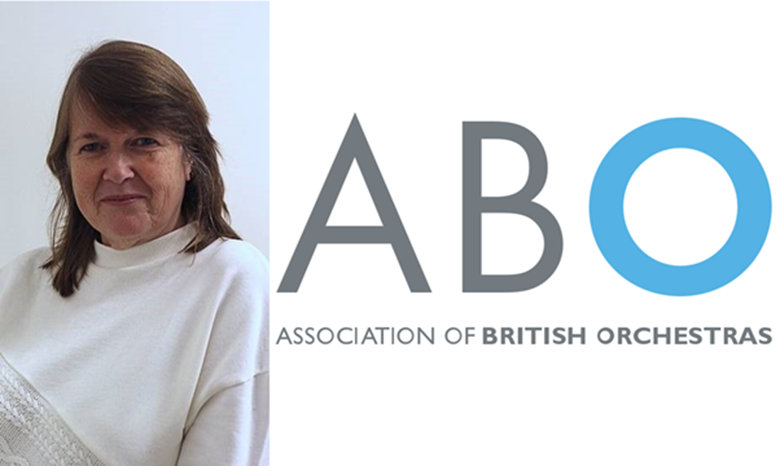Judith Webster: ‘I see the ABO as a development agency for orchestras’
Judith Webster
Monday, September 25, 2023
As the Association of British Orchestras’ new chief executive Judith Webster settles into her role, she sets forth her vision for the ways the ABO will support the UK’s orchestral sector going forward

Last November, I was privileged to land the job of chief executive of the Association of British Orchestras (ABO). All my previous professional roles seemed to be leading to this point. After 10 years as CEO of Music for Youth, with the stress of leading the organisation successfully through the pandemic, I took time out, convinced that I did not want to be a CEO again. However, I was persuaded to think about the ABO role. After the double whammy of Covid and Brexit, change was in the air and the more I looked at the orchestral sector the more opportunities I saw. Having worked for orchestras in the 90s and 00s and having experience of working outside the sector but close by in higher education and music education roles in recent years, I had an outsider’s perspective on the current state of affairs for and in orchestras with the benefit of ‘insider’ knowledge. I could now bring fresh insights into an arena that remained incredibly close to my heart. I could be a champion of orchestras – and more importantly, a critical friend.
I see the ABO as a ‘development agency’ for orchestras and the whole ecology which supports them. It is our job to both support and challenge our membership, to facilitate constructive conversations between, about and on behalf of orchestras and most crucially, to make sure that those constructive conversations turn into positive action.
"It is our job to both support and challenge our membership"
Let’s face it, right now we have a choice of challenges to deal with. Some would even say we are facing an existential crisis and that Arts Council England’s funding decisions last Autumn, together with the BBC’s attempt to reduce the head count of its performing groups, signal a worrying trend in public investment in classical music and a concerning lack of perceived public value.

 'We are showing that orchestras are present in many places and settings that the general public does not even realise' ©Adobe Stock
'We are showing that orchestras are present in many places and settings that the general public does not even realise' ©Adobe Stock
I feel strongly that the narrative around orchestras needs to change to a more positive one. We cannot simply complain that we need more funding, more audiences, more public support. We need to see things from the perspective of those who we are reaching out to, what they care about and how what we do might speak to them. We must make our case in a way that acknowledges the everyday lives and concerns of those who are not yet our audiences. We have so many positive stories to tell about the vast range of work and initiatives orchestras engage in beyond the concert platform that resonate with issues people care about. Adult social care, climate change, refugees, young people’s mental health and wellbeing – orchestras work in all of these settings and make a real difference to people’s lives.
We perform magnificent concerts in traditional concert halls which are familiar to people like me and most likely to be attended by… people like me. But we also create fabulous events in alternative spaces for classical music, with the kind of presentation and event culture that is expected in those spaces. They draw a different crowd and are free of the conventions which can ordinarily put people off.
"The participation work undertaken by orchestras is an expression of who they are and how they contribute to society."
By highlighting the value of learning and participation work beyond the concert platform, we are not ‘selling out’, we are demonstrating that orchestras, like any healthy business, can and must innovate and diversify to survive and thrive. We are showing that orchestras are present in many places and settings that the general public does not even realise, doing valuable work that contextualises and amplifies their role within the community and society at large. When I was running education and community programmes for the Royal Philharmonic Orchestra earlier in my career, I used to think that taking musicians into care homes was one of the easier, less imaginative things that we could do. Now that one of my friends is in a care home following a stroke at an early age, I understand the enormous impact of those visits on the residents, the care staff and the families. We need to shout about this much more than we do.
The participation work undertaken by orchestras is an expression of who they are and how they contribute to society. It is not about the privileged few sharing their pearls of wisdom with the masses or force-feeding classical music to the uninitiated because it’s good for them. The brilliant reality is that the work of orchestras takes many forms – each of which touches different people in different ways. Whether this is in schools, in healthcare, in clubs, through a gaming console, on a film soundtrack or in a traditional concert venue – we should celebrate it all!
I am excited by the prospect of the ABO actively supporting the sector to seize this opportunity and to shift the dial.


